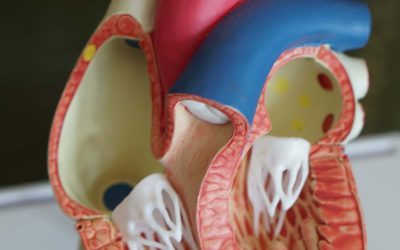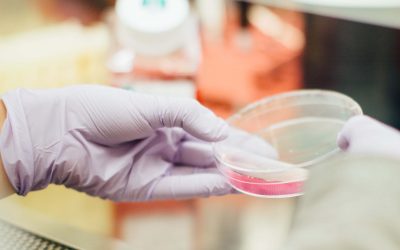Keeping you informed on COVID-19, otherwise known as the novel coronavirus.
As you will no doubt be aware, there is currently an outbreak of a novel coronavirus (COVID-19), which is raising global concern as it continues to spread across the world. This site has been created to keep you up to date with the latest information and breaking news regarding the virus, its spread and what steps to take for prevention and treatment.
Breaking COVID-19 news
COVID-19 Information
Everything you need to know about the coronavirus (COVID-19) pandemic.
Children lost about 35% of a normal school year’s worth of learning during the pandemic, study suggests
Article from edition.cnn.com
CNN — A new paper adds to the mounting evidence that school-age children across the globe experienced significant setbacks in their learning progress during the Covid-19 pandemic.
Covid-19 Increases Risk of Blood Clots for Up to Six Months: Study
Article from ewn.co.za
PARIS – People who have had COVID-19 have an increased risk of developing serious blood clots for up to six months after getting infected, even in mild cases, a study said Thursday.
Photo by Robina Weermeijer on Unsplash
Long Covid: Researchers find organ issues up to a year after infection
Article from news24.com
People with long Covid can experience reduced function in multiple organs for at least a year after being infected with the virus, a study has found.
Coronavirus (COVID-19) News
News from around the world
Local news
Fifteen more cases of Covid-19 ‘Kraken’ subvariant detected in South Africa
Article from dailymaverick.co.za
Almost 20 cases of XBB.1.5 – the Omicron subvariant that’s been described as the most transmissible to date – have now been identified in South Africa.
Fresh Round of Covid-19 Shots Available from Monday
Article from businesslive.co.za
Adults older than 50 can get a third booster, while those aged between 18 and 49 are eligible for a second one as government seeks to use huge surplus of vaccines.
No time for Covid-19 complacency – the pandemic is not over, experts say
Article from news24.com
South Africa may have already entered the fifth Covid-19 wave ahead of winter, and two experts agree that to avoid a surge in Covid-19 hospitalisations, people should ensure they’re vaccinated and boosted.
International News
WHO: COVID-19 still an emergency but nearing ‘inflection’ point
Article from ctvnews.ca
GENEVA – The coronavirus remains a global health emergency, the World Health Organization chief said Monday, after a key advisory panel found the pandemic may be nearing an “inflection point” where higher levels of immunity can lower virus-related deaths.
Eight in 10 people in China caught Covid since early December, say officials
Article from theguardian.com
About 80% of China’s population has been infected with Covid-19 since restrictions were lifted in early December, Chinese health authorities have said.
Beijing reopens mass isolation centre in fight against Covid
Article from theguardian.com
Beijing has reopened a mass isolation centre as authorities seek to contain an outbreak of Covid-19 in the city.
Prevention
What measures can we take to avoid being infected with the coronavirus (COVID-19)?
Wash your hands regularly
Wash your hands often and well with water and soap or other disinfectants, especially after coughing and sneezing, using toilets, before handling or preparing food, and after contact with sick people.
Avoid contact
Avoid contact with infected people and use face masks if visiting sick relatives.
Don't touch your face
Avoid touching your eyes, and/or nose as much as possible.
Cover your mouth and nose
Use a tissue when sneezing or coughing and then get rid of the tissue in a bin. Always wash your hands afterwards. If there is no tissue it is advisable to cough or sneeze into your upper sleeve or elbow, and not your hands.
Keep clean
Maintain good hygiene habits and disinfect frequently touched objects and surfaces.
Social distancing
Keep a distance of 1.75m from other people. Avoid congregating in public areas.
Frequently asked questions
Here are some of the most frequently asked questions and answers about the coronavirus (COVID-19), which we hope will put your mind at rest.
What are the most common signs and symptoms of the coronavirus?
Symptoms may appear in as little as two days, or as long as 14 days after exposure to the virus. Symptoms of infection may include coughing, fever, congestion of the nose and throat and shortness of breath.
How exactly is this coronavirus, and are we as South Africans at risk?
Coronaviruses belong to a large family of viruses that include the MERS and SARS viruses, and can cause a wide spectrum of respiratory illnesses. Although the virus is contagious and may be potentially life threatening in a few people, the risk of contracting it in South Africa is currently low, with no cases having been confirmed in this country at this time.
What should you do if you develop signs and symptoms?
If you do develop respiratory illness symptoms, visit your healthcare provider and ensure that you disclose your full travel history to them. Your healthcare provider will advise you if you should be tested for the novel coronavirus.
Should you use a mask?
If you are healthy, you need to wear a mask if you are in public, taking care of a person with suspected coronavirus infection, or if you are coughing and/or sneezing. Remember that masks are effective only when used in combination with frequent hand cleaning with alcohol-based hand rub, or soap and water. If you do wear a mask, make sure you know how to use it and always dispose of it properly.
How is the virus spread?
The coronavirus is spread in a similar way to influenza (flu) viruses, which is through: The COVID-19 virus is spread in a similar way to influenza (flu) viruses, which is through:
• Direct contact with other infected people.
• Droplets generated through coughs or sneezes.
• Contact with infected surfaces such as tabletops and shared objects like utensils etc.
• Faecal-oral contact.
Are there any specific medicines to prevent or treat the new coronavirus (COVID-19)?
To date, there is no specific medicine recommended to prevent or treat the new coronavirus. Those infected with the virus should nevertheless receive appropriate medical care to according to their symptoms.
Some specific treatments are under investigation and will be tested through clinical trials. The World Health Organization (WHO) is helping to accelerate research in this area.
Do vaccines against pneumonia protect you against the new coronavirus (COVID-19)?
No, vaccines against flu and/or pneumonia, such as a pneumococcal vaccine, do not provide protection against the new coronavirus.
What should you keep in mind when travelling internationally?
All individuals planning travel should seek advice on the potential hazards of their chosen destinations and understand how best to minimise the risk of acquiring infectious illnesses such as the coronavirus.
Should you develop symptoms of an acute respiratory illness before, during or after travel, you are encouraged to seek medical attention and share your travel history with your healthcare provider.
Can pets at home spread the new coronavirus (COVID-19)?
At present, there is no evidence that companion animals/pets, such as dogs or cats, can be infected with the new coronavirus.
Is it safe to receive a letter or a package from China?
Yes, it is safe. People receiving packages from China are not at risk of contracting the new coronavirus. From previous analysis, we know coronaviruses do not survive long on objects, such as letters or packages.


